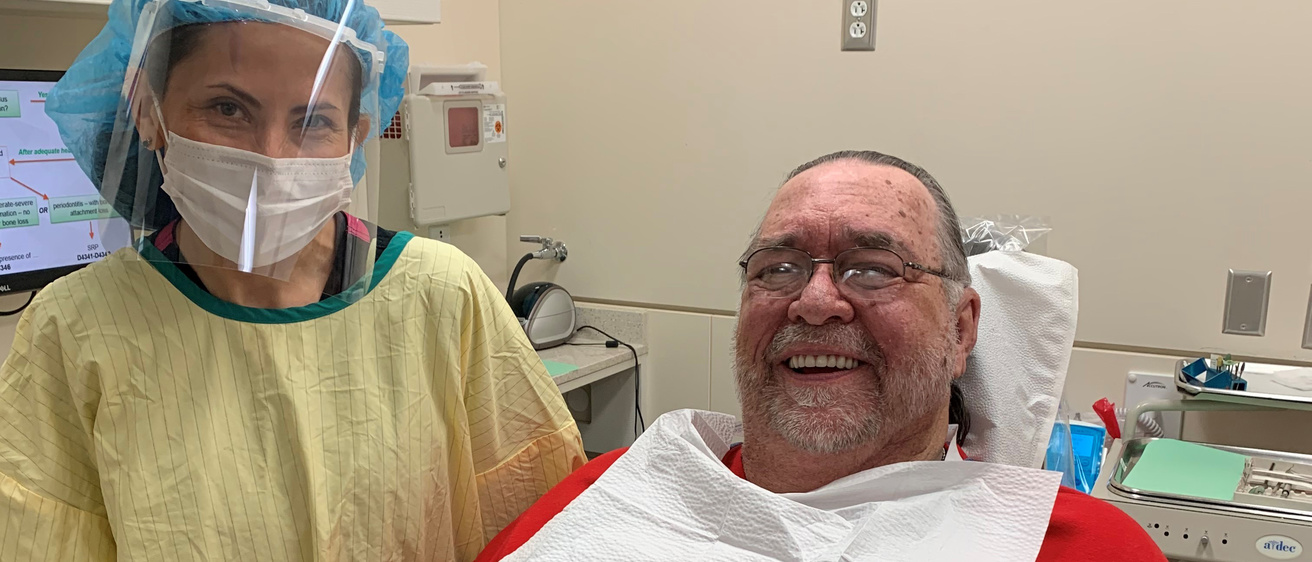Prosthodontics Services
Dentures
Dentures, also known as false teeth, are prosthetic devices constructed to replace missing teeth. Dentures are supported by surrounding bone and gums in the mouth. Conventional dentures are removable; however, there are many different denture designs that can work with dental implants.
Dental Implants
Dental implants replace the root of a tooth with a device, usually made of titanium. These implants allow the prosthodontist to make permanent tooth restorations as replacements for missing teeth. Titanium is very strong. biologically inert, and will not be rejected by the body.
Crowns
A crown is a type of dental restoration that completely caps or encircles a tooth or dental implant. Crowns are often needed when a large cavity threatens the health of a tooth. They are typically bonded to the tooth using dental cement. Crowns can be made from many materials, and they typically improve the strength or appearance of teeth. The procedure and materials can be relatively expensive, but this method of tooth restoration has excellent longevity.
Immediate Dentures
Get full details on immediate dentures.
Implant Dentures
Using dental implants as anchors for dentures keeps dentures from slipping or moving and improves patient satisfaction. The dentures snap on the implants, but can still be detached for cleaning. Typically, the lower jaw has needs only two implants to improve the function of the dentures, while the upper jaw usually takes 4-6 implants to secure it.
Fixed Complete Denture
A complete fixed denture uses ten dental implants, including 4 on the lower jaw and 6 on the upper jaw, to anchor dentures in place. The dentures are screwed permanently to the dental implants and can only be removed by a dentist (if required for maintenance).
Full Mouth Reconstruction
Full mouth reconstruction rebuilds or replaces all the teeth in a patient’s mouth. Patients that have many missing teeth, large fillings that are failing or decaying, cracked or broken teeth, or badly worn teeth may be candidates for full mouth reconstruction. Patients may also have genetic conditions, such as ectodermal dysplasia, ameliogenesis, or dentinogenesis imperfecta, that require full mouth reconstruction.
The treatments can include crowns, bridges, veneers, dental implants, and or dentures that will essentially provide not only a smile makeover, but improves chewing too. For some patients, orthodontists, periodontists, and endodontists (all under one roof at the College of Dentistry) may be involved in the treatment to ensure the best possible outcome.
